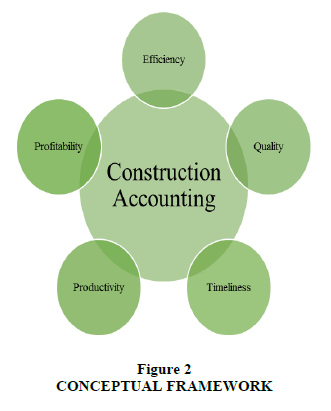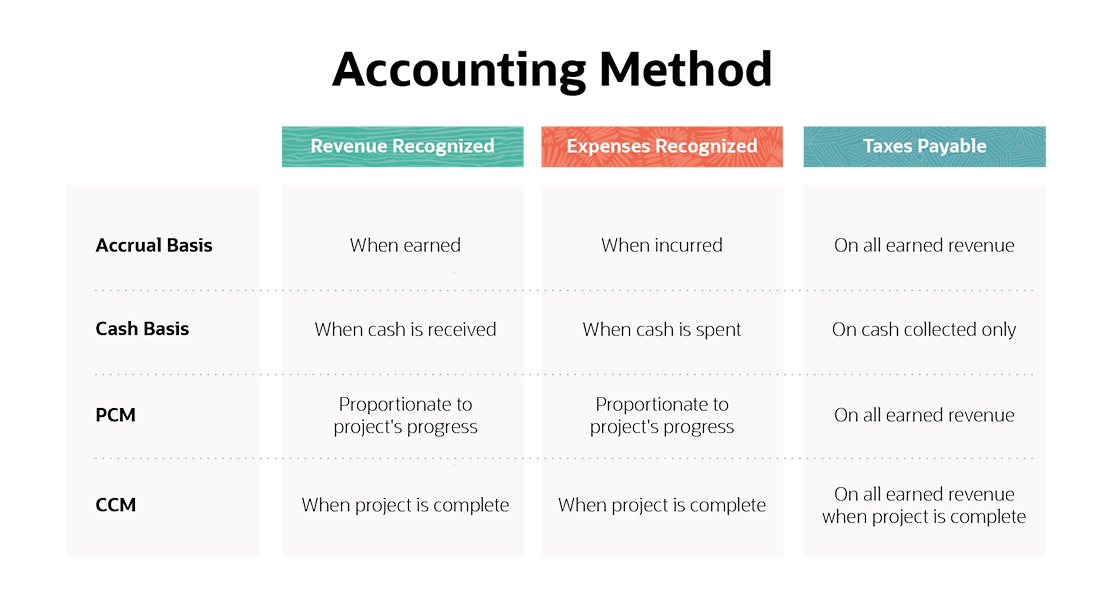Construction Accounting: Tools and Techniques to Optimize Your Financial Operations
Construction Accounting: Tools and Techniques to Optimize Your Financial Operations
Blog Article
Comprehending the Importance of Construction Bookkeeping for Successful Project Monitoring

Role of Construction Accountancy
Building and construction bookkeeping acts as the foundation of monetary monitoring in the building and construction industry, ensuring that tasks are completed within budget plan and financial objectives are fulfilled. construction accounting. This specialized accounting method addresses the distinct obstacles dealt with in building and construction jobs, consisting of differing job durations, rising and fall expenses, and multiple stakeholders
Among the main functions of construction accounting is to give exact price estimate and tracking throughout the job lifecycle. This facilitates enlightened decision-making, enabling task managers to change timelines and resources effectively. Additionally, building accounting enhances capital management by checking accounts receivable and payable, therefore making sure that funds are offered for prompt repayments to subcontractors and suppliers.
Furthermore, construction accounting help in conformity with market laws and reporting demands. It outfits task managers with the required monetary information to prepare thorough financial statements, which are vital for audits and financial testimonials. By keeping clear records, building accountancy promotes openness and accountability, essential parts in building count on among stakeholders. Inevitably, the role of building accounting expands past plain economic monitoring; it is important to critical planning and operational efficiency, driving the success of construction jobs in an affordable landscape.
Secret Elements of Building Accounting

Budgeting establishes a financial framework that guides job execution, enabling managers to allot sources successfully and prepare for prospective monetary difficulties. Accurate price tracking is vital for surveillance expenditures in real-time, assisting to recognize variations between projected and real costs. This allows prompt modifications to maintain the task on spending plan.
Furthermore, financial coverage supplies stakeholders with a clear image of the task's financial wellness. Regular reports, such as earnings and loss declarations and capital analyses, assist in informed decision-making and enhance openness among all events involved.
Furthermore, compliance with industry laws and accountancy requirements is important. This makes certain that monetary practices are not just efficient yet additionally legal, protecting the organization versus legal consequences. By incorporating these crucial parts, construction audit cultivates an organized technique to managing funds, inevitably adding to the successful conclusion of construction tasks.
Advantages for Job Supervisors
Leveraging efficient building accounting methods offers task supervisors with a multitude of advantages that boost both functional performance and economic oversight. One substantial benefit is boosted budget plan administration. Accurate tracking of profits and expenses enables project managers to check economic efficiency in genuine time, guaranteeing projects stay within budget plan and assisting in prompt modifications when required.
In addition, construction accounting simplifies cash circulation administration, allowing job managers to optimize and expect monetary demands source allotment. By comprehending money inflows and discharges, they can much better take care of settlements to staff members, subcontractors, and suppliers, thus avoiding expensive delays.
In addition, robust accounting systems offer detailed coverage abilities. Task managers can generate records that supply understandings right into task success, expense differences, and resource utilization. This data-driven technique promotes notified decision-making, allowing managers to determine possible problems proactively and carry out rehabilitative measures.
Lastly, adherence to building and construction bookkeeping criteria makes certain compliance with regulatory and lawful requirements, reducing the danger of charges or conflicts. Generally, effective building bookkeeping gears up task supervisors with the tools required to drive task success, improve stakeholder confidence, and advertise long-lasting business growth.
Typical Difficulties in Building Audit
Several job supervisors run into substantial obstacles in construction bookkeeping that can prevent task success. Among the main obstacles is the complexity of tracking several job sites, each with distinct budget plans, timelines, and source allowances. This requires precise focus to information, which can be overwhelming without a robust accounting system in position.
Furthermore, changing product costs and labor rates can complicate spending plan management, making accurate forecasting challenging. Task managers typically have a hard time to fix up these costs with actual expenses, causing prospective monetary inconsistencies.
In addition, construction accountancy entails compliance with different guidelines, including tax commitments and labor laws. Browsing these guidelines can be daunting, especially for managers that may not have a strong audit background.
An additional significant difficulty is handling capital, which is important in the building sector. Hold-ups in invoicing, repayments from customers, or unforeseen job adjustments can develop capital scarcities, threatening the task's progress.
Last but not least, effective communication in between task managers, accountants, and area groups is vital. Misconceptions can result in imprecise financial reporting, further complicating task management efforts. Resolving these difficulties proactively is important for successful building and construction bookkeeping.

Ideal Practices for Effective Accountancy
While browsing the intricacies of building and construction accountancy can be overwhelming, taking on finest methods can dramatically enhance monetary administration and job success. One essential technique is preserving timely and exact documents. Carrying out durable accountancy software application customized to construction jobs can streamline data entry, invoicing, and coverage, saving and decreasing mistakes time.
In addition, establishing a clear budget plan and regular monitoring against this budget are critical. Using a system of periodic financial testimonials allows job managers to identify differences early, facilitating prompt decision-making. It is additionally necessary to different job prices into straight and indirect classifications, making it possible for more clear understandings into success.
One more finest technique involves promoting open interaction amongst all stakeholders. Routine updates and pop over to this web-site collective conversations concerning monetary status can make certain every person is straightened and informed. Educating staff in construction-specific audit concepts better boosts competency and precision.
Last here are the findings but not least, guaranteeing conformity with pertinent accountancy requirements and policies is non-negotiable. Regular audits and internal evaluations add to transparency and accountability, constructing depend on with stakeholders and clients. By concentrating on these best practices, construction firms can optimize their accountancy processes, eventually driving task success and financial stability.
Conclusion
Finally, construction bookkeeping plays a critical duty in ensuring successful job management by facilitating precise financial oversight and boosting decision-making. By integrating essential elements such as price estimate, cash money flow monitoring, and conformity, project managers can navigate usual obstacles and utilize finest practices for efficient audit. Inevitably, a robust building and construction accounting framework not just safeguards budget integrity but likewise contributes to the overall monetary health and wellness of construction jobs, cultivating lasting success within the sector.
By incorporating these crucial components, construction bookkeeping cultivates a structured approach to taking care of monetary sources, inevitably adding to the effective conclusion of building and construction tasks.
Exact tracking of costs and incomes permits job managers to check economic performance in genuine time, ensuring projects stay within budget plan and assisting in prompt changes when required.
Job managers can create records that provide insights right into project profitability, expense variations, and resource use.Several job supervisors experience significant difficulties in building and construction accounting that can impede project success. construction accounting. Inevitably, a durable building and construction additional hints bookkeeping framework not only safeguards budget integrity but also contributes to the general economic wellness of construction jobs, cultivating sustainable success within the market
Report this page